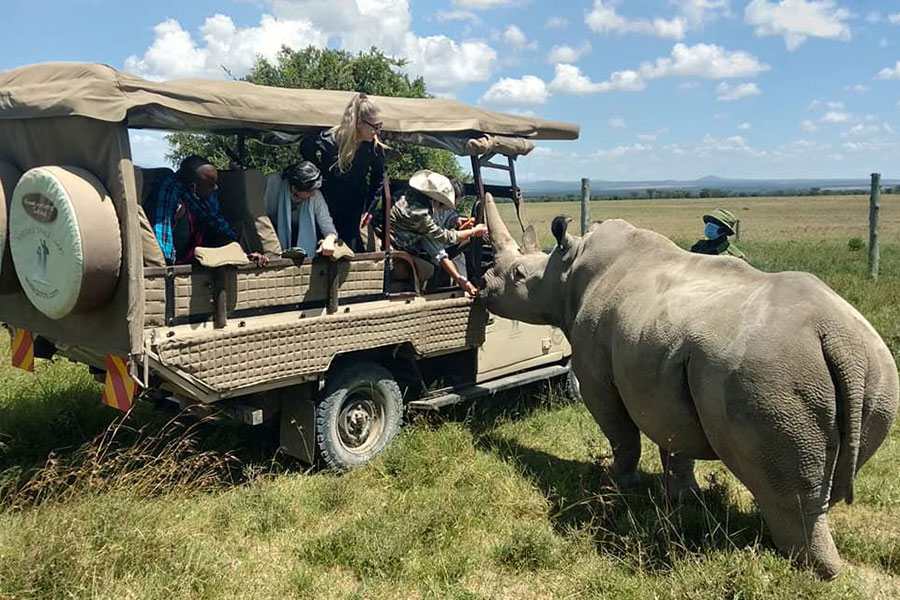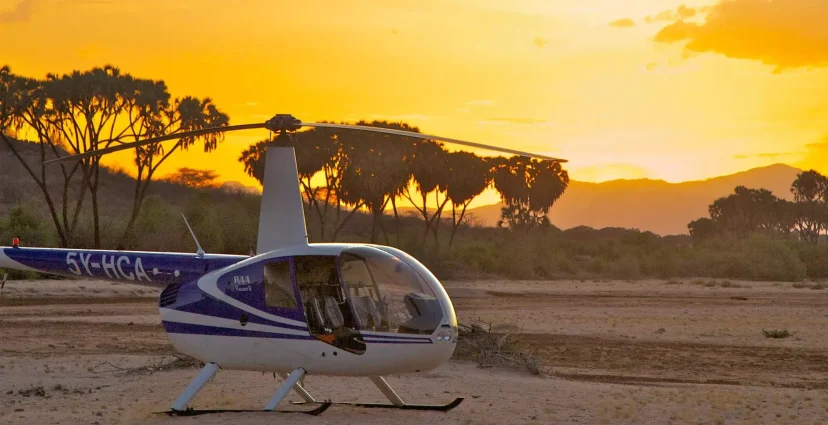Free Info To Selecting Kenya Safaris
Free Info To Selecting Kenya Safaris
Blog Article
What Are The Health Precautions I Need To Take While Travelling To Mombasa, Kenya For A Vacation?
If you're planning a trip to Mombasa (Kenya) it's crucial to be aware the health hazards. Here are some health-related issues to be aware of:
1. Vaccinations
Routine Vaccinations: Ensure that you are up-to-date on routine vaccines such as measles-mumps-rubella (MMR), diphtheria-tetanus-pertussis, varicella (chickenpox), polio, and your yearly flu shot.
Hepatitis A - Recommended for all travelers due to the possibility of drinking water and food being affected.
Hepatitis B. Travelers exposed to bodily fluids, blood or sexual contact (e.g. medical treatment or use of drugs) must be aware of the possibility of contracting this disease.
Typhoid is important for people who stay with family or friends travel to smaller cities or areas, or are an adventurous eater.
Yellow Fever. Travelers from countries at risk of introducing yellow fever may be required to present a vaccination certificate. Check the most recent guidelines.
Rabies: Think about it when you travel outside and are exposed to animal bites. This includes people going camping, hiking or caving.
2. Malaria Prevention
Mombasa's malaria is prevalent. Consult your physician about the best antimalarial drug for you.
Beware of Mosquito Bites Use insect repellent with DEET, dress in long-sleeved clothes and long pants, particularly in the evenings and nights and then sleep with a mosquito net if not staying in an air-conditioned or well-screened room.
3. Food and Water Safety
Drink with caution: Choose boiling or bottled water. Do not drink tap or ice water.
Consume well-cooked food only. Avoid meats that are raw, undercooked, or seafood. Also, avoid fruit and vegetables that have not been washed. Be wary of street food. Choose reputable eating establishments instead.
4. Diarrhoea en route
Soaps and hand sanitizers make excellent alternatives for hand washing. Beware of drinking and eating foods from sources you are not certain of.
Always carry medication, such as Imodium (loperamide) as well as salts or oral water rehydration. In the case of severe cases, you may need to consult with your doctor.
5. Sun Protection
Sunscreen: Use sunscreens with SPF 30 or more. Make sure to apply sunscreen frequently, especially when swimming or sweating.
Wear protective clothing, such as glasses, hats and long, light-colored sleeves to minimize the sun's rays.
6. Heat and Hydration
To avoid dehydration, drink lots of fluids. Beware of drinking too much caffeine or alcohol, since they can lead to dehydration.
Avoid overexertion. Pause during the hotter parts of the day. You should seek shade to prevent heatstroke and exhaustion.
7. Water Safety Activities
Swimming in Areas designated: Be aware of local conditions including currents, as well as hazards.
Marine Life Awareness - Be aware of and avoid harmful marine life like jellyfish and sea Urchins. Wear water shoes if walking along shallow water.
8. Medical Care and Insurance
Travel Insurance: Be certain to purchase complete travel insurance that will cover evacuation in the event of a medical emergencies.
Local Medical Facilities - Familiarize yourself with the addresses of medical facilities that are reputable in Mombasa. Many hotels offer details of nearby hospitals and doctors.
Make sure you have enough medication to last for the entire duration of your journey.
9. Contacts for Emergencies
The Embassy Contact the Embassy from your home country in Kenya.
Local Emergency Numbers:
Enjoy your time in Mombasa and reduce the risk by taking these easy health tips. View the top kenya day tours for more examples including kenya tourism, afri safari, mombasa tours, african safari kenya, kenya travel packages, kenya beach and safari holiday, travel & tours company, africa and safari, kenya safari holiday packages, mombasa safari packages and more.
What Cultural Sensitivity Concerns Should I Be Aware Of Prior To An Event In Mombasa?
It is essential to be sensitive to culture when you travel to Mombasa Kenya to enhance your experience. Here are a few important considerations:
1. Respect Local Dress Codes
Modest clothing: Mombasa has a significant Muslim community. It is acceptable to dress modestly when visiting public areas, religious sites, or local neighborhoods. This means you must dress in a modest manner, covering your shoulders, chest as well as your knees and legs.
Beachwear: Swimwear is acceptable on the beach, but it is recommended to wear a cover-up before leaving the beach or going to nearby shops and restaurants.
2. Religious Sensitivity
Visiting Mosques: If you would like to visit a mosque, seek permission first, and dress appropriately. Women must cover their heads, and all people should take off their shoes before entering.
Prayer Times: Be aware of the five times for prayer each day and make sure you are respectful during these times, especially if you are near an Islamic mosque.
3. Photography Etiquette
Permission: Before taking pictures of anyone, make sure you get their consent. This is particularly important in areas of rurality or locations with traditional values. Some people may be uncomfortable or believe it is unsettling.
Restricted Areas Avoid taking photographs of sensitive places such as military sites, government structures, and certain cultural locations where photography is prohibited.
4. Social Interactions
It's essential to greet your fellow citizens with respect. Swahili is a language that has a greeting known as "Jambo", or "Hello". For Muslim women it is appropriate to wait until they have extended their hands first or to say hello with a verbal greeting.
Your Personal Space: Be mindful of your personal space and stay away from physical contact with those who aren't yours. This is particularly important when you are in a more conservative environment.
5. Cultural Norms and Taboos
Limit public displays of affection. They are generally looked at.
Left Hand Use: Traditionally the hand that is left handed is regarded as unclean. You should use your right hand to eat or greet people, as well as exchange goods or money.
Feet: displaying your feet or pointing people using your feet can be considered disrespectful.
6. Language and Communication
Basic Swahili Learn a few basic phrases in Swahili can help in showing respect and building rapport with the locals. The most common Swahili phrases include "Asante" meaning "thank you", and "Habari" meaning "How do you feel?" ).
Politeness is essential. Be polite and patient when you communicate. Kenyans are polite and respectful in their interactions.
7. Respect for Local Customs
Respecting traditions Respecting the traditional rituals and customs. Follow the instructions of your hosts at any event you attend.
Bargaining: Bargaining is common at local markets and in shops, but it should be done respectfully and with a smile. It's not a tactic to fight however it is a social one.
8. Alcohol and Smoking
Consumption: Alcohol can be purchased however it should be consumed in a discreet manner especially in heavily Muslim regions. Beware of public drinking.
Smoking in public places is not allowed. There are designated smoking zones.
9. Environmental Respect
It is a crime to litter. Be respectful of wildlife and natural habitats.
Help in conservation efforts. Be respectful of wildlife and habitats in your area. Avoid buying products made from endangered species.
10. Supporting Local Communities
Local Businesses - Support local markets and businesses.
Responsible Tourism: Make sure you select eco-friendly tourism that benefits the local community.
You can increase your understanding of local culture by following these guidelines for cultural sensitivity. See the top island snorkeling in mombasa for more advice including safari mombasa kenya, african safari africa, luxurious african safari, safar kenya, african safari africa, tour company, trip tour companies, beach in mombasa, kenya safari packages, trip tour companies and more.
What Environmental Requirements Do I Have To Be Aware Of When I Am What Environmental Responsibilities Should I Be Aware Of When Traveling Mombasa, Kenya?
Being environmentally responsible when traveling in Mombasa is important to preserve the natural beauty of the area and its diversity. Take note of these environmental responsibilities:
1. Sustainable Accommodation
Eco-friendly Hotels: Choose hotels that are committed to sustainability. Look for eco-labels such as Eco-Tourism Kenya.
Resource Conservation: Participate in hotel initiatives to conserve water and energy. Reuse linens and towels. Shut off lights and air conditioning if they are not used.
2. Responsible Wildlife Viewing
Keep away from wildlife: from them to avoid disturbing. Your tour guide will provide you with guidelines.
Avoid feeding animals. Feeding wildlife can disrupt their natural diet and behavior.
Leave No Track: Don't litter around parks or wildlife reserves. Take all of your trash and dispose of them in a proper manner.
3. Plastic Reduction
Do not use products with a single use. Carry a reusable water bottle, shopping bag, and tools.
Support Local Initiatives - Participate or support local beach cleaning efforts and organizations that are working to reduce plastic waste.
4. Water Conservation
Make use of water wisely: Mombasa experiences water scarcity problems. Use shorter showers, and turn off the taps when they are not being used.
Eco-Friendly Product: Minimize water pollution by using biodegradable and eco-friendly products.
5. Energy Conservation
Reduce energy consumption: limit the usage of air conditioners and disconnect electronic devices when they are not being used.
Support renewable energy: Select hotels and tour operators that use renewable sources of energy.
6. Sustainable Transportation
Public Transportation: If you can, minimize your carbon footprint using public transportation, like buses and matatus.
Try using bicycles to cover short distances. Some areas have eco friendly taxis.
7. Supporting Local Business
Buy Local: Help support your local economy by buying food and souvenirs from local artisans and sellers.
Fair Trade: Buy fair-trade products that are certified to ensure that farmers in the area are paid fairly.
8. Environmental Education
Learn and share information: Learn about the local environment and conservation efforts. Do share your knowledge with others to create awareness.
Respect Local Cultures : Be aware of and respect local traditions, practices, and beliefs related to conservation of the environment.
9. Marine Conservation
Responsible Snorkeling and Diving Do not touch or step directly on coral reefs. Use sunscreen that is safe for reefs and non-toxic to protect marine wildlife.
Waste Disposal: Don't dump trash into the ocean. Participate in or support programs for marine conservation.
10. Ethical Souvenirs
Avoid products made from wildlife Don't buy items that are made from endangered species, such as ivory or tortoiseshell.
Sustainable Materials: Purchase products made of recycled or sustainable materials.
11. Join Conservation Activities
Volunteering: Get involved in local conservation efforts or community-based tourism initiatives.
Support NGOs: Donate to or support local NGOs as well as conservation groups that work to protect the environment.
12. Responsible Travel Practices
Travel in small intimate groups to reduce environmental impact.
Eco-Tours: Choose tour operators who are environmentally sustainable and dedicated to sustainability.
Remember that these obligations will assist you protect Mombasa's valuable natural resources, and maintain the beauty and variety of the region for the future generation. Have a look at the best kenya safari packages prices for site examples including trips to kenya africa, kenya beach and safari holiday, safari a nairobi, kenya mombasa holiday packages, kenya tours, tour firms in kenya, mombasa packages, kenya tours and travel, tour company in kenya, mombasa packages and more.